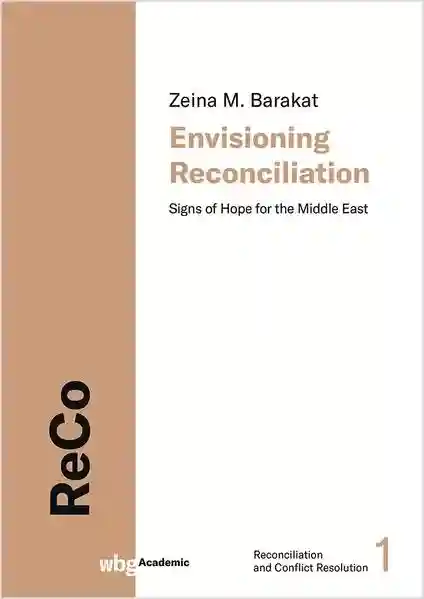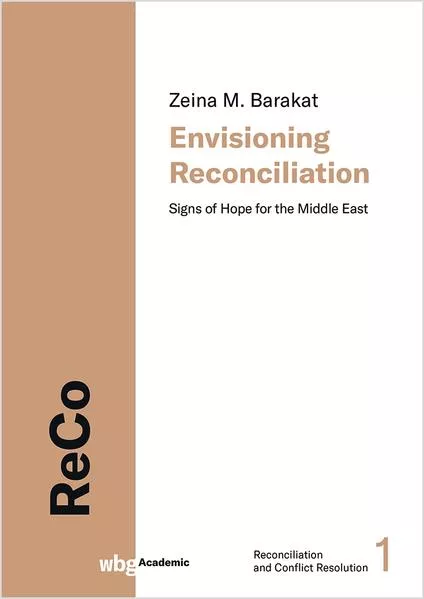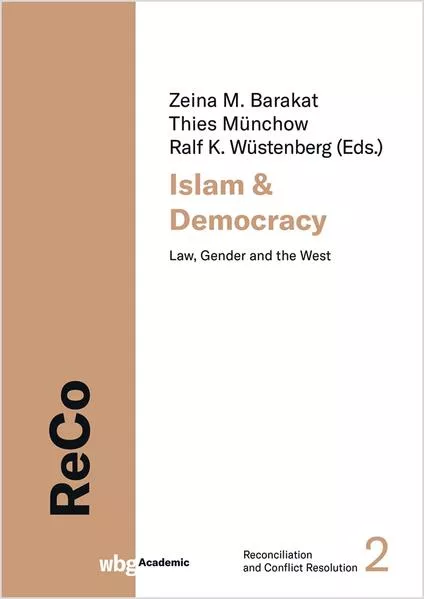Chronologie aller Bände (1 - 2)

Die Reihenfolge beginnt mit dem Buch "Envisioning Reconciliation". Wer alle Bücher der Reihe nach lesen möchte, sollte mit diesem Band von Ralf Wüstenberg beginnen. Der zweite Teil der Reihe "Islam and Democracy" ist am 01.09.2022 erschienen. Die Reihe umfasst derzeit 2 Bände. Der neueste Band trägt den Titel "Islam and Democracy".
- Anzahl der Bewertungen für die gesamte Reihe: 0
- Ø Bewertung der Reihe: 0
Diese Reihenfolge enthält 2 unterschiedliche Autoren.
- Band: 1
- Autor: Barakat, Zeina
- Anzahl Bewertungen: 0
- Ø Bewertung:
- Medium: Buch
- Veröffentlicht: 01.09.2022
- Genre: Politik
Envisioning Reconciliation
While political reconciliation is often understood as promoting peace and harmony in post-conflict situations, Barakat explores reconciliation amid crisis and conflict with a particular focus on Israel and Palestine. Various pre-conditions for reconciliation are addressed (truth, justice, trust), and barriers hindering reconciliation’s prospects in conflicts are diagnosed (denial, dehuminazation, non-recognition). Perceptions of the past and aspirations for the future are formulated such as apology, forgiveness and empathetic dialogue.
Political reconciliation processes are profound and long-term; they demand changes in basic aspirations, emotions, and feelings among those involved in conflict. Barakat concludes that promoting reconciliation requires both a top down and bottom up approach. In this lessons from South Africa can be learnt. Leading figures like Nelson Mandela are models in promoting a shift in the psychosocial thinking conducive to social conflict transformation.
- Band: 2
- Autor: Wüstenberg, Ralf
- Anzahl Bewertungen: 0
- Ø Bewertung:
- Medium: Buch
- Veröffentlicht: 01.09.2022
- Genre: Politik
Islam and Democracy
This volume breaks new ground by seeking to identify and focus on the challenges faced by any attempt to integrate democratic principles within the broad framework of Islamic thought and practice. It does so by harnessing the views of seventeen distinguished scholars from a range of disciplines who not only provide their own perspectives, but actively engage with the views of other contributors, thus producing arguments and synergies which are both erudite and convincing.
The volume’s first section ‘Islam and Democracy’ tackles head on the often-contested assertion that Islam is incompatible with democracy, because political authority in Islamic societies derives its legitimacy from scriptural not secular injunctions. This is followed by a discussion of the often-contentious issue of ‘Islam and Sharia Law’ leading into the examination of the vexed issue of ‘Islam and the West.’ Finally, the volume fosters the underdeveloped, but blatant question of womanhood and ‘gender within Islam.’

